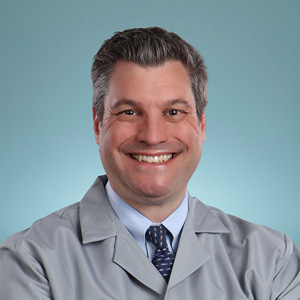About NorthShore’s Program for Personalized Cancer Care (PPCC)
Our Program for Personalized Cancer Care (PPCC) focuses on translating genomic discoveries into highly effective tailored cancer care. From screening to treatment, the PPCC takes a comprehensive approach not found in most health systems. Developing new therapies to provide the best care to patients with advanced disease remains a priority. However, our program also strives to leverage genetic information to improve the accuracy of determining an individual’s risk for developing disease and to better personalize therapies to a patient’s specific condition. Analyzing the genetic makeup of individuals with and without cancer can save lives by greatly improving early prevention and diagnosis.
Our internationally-recognized research team has already pioneered the development of next-generation genomic screening tools for prostate cancer that individualize PSA screening and reduce the number of prostatic biopsies. Patients only need to provide a small sample of blood or saliva to learn of their risk factors for prostate cancer development and/or biopredictors for their prognosis to help customize treatment. One of these innovative assays, the prostate cancer GRS, is available through Helix. Other innovative assays will soon become available to patients at NorthShore.
Dr. Jianfeng Xu
 Jianfeng Xu, DrPH is Vice President of Translational Research at NorthShore University HealthSystem (NorthShore) and holds the Ellrodt-Schweighauser Family Chair of Cancer Genomic Research. Dr. Xu is also Director of the Program for Personalized Cancer Care (PPCC) at NorthShore, and a Research Professor at the University of Chicago Pritzker School of Medicine.
Jianfeng Xu, DrPH is Vice President of Translational Research at NorthShore University HealthSystem (NorthShore) and holds the Ellrodt-Schweighauser Family Chair of Cancer Genomic Research. Dr. Xu is also Director of the Program for Personalized Cancer Care (PPCC) at NorthShore, and a Research Professor at the University of Chicago Pritzker School of Medicine.
With a combined background in medicine, public health, and genetic epidemiology, Dr. Xu is an internationally known genomic translational researcher. He strongly believes that many genomic discoveries have application in the clinic and should be widely adopted by physicians and consumers alike. He also believes that personalized medicine can be applied to all levels of cancer care, from individualized cancer prevention and screening strategies to customized treatment modalities of localized cancer and targeted cancer therapy for advanced cancer.
Dr. Xu developed a genetic risk score (GRS) to measure the cumulative effect of multiple disease-associated genetic variants on disease risk. Since publishing the GRS method and its application in prostate cancer 10 years ago in the New
England Journal of Medicine, he has been working continuously and persistently to improve the GRS method and demonstrate its clinical validity and utility. He has received multiple U.S. patent awards for several GRS-related intellectual properties.
GRS is an objective and informative tool for inherited risk assessment and can identify many more high-risk subjects than family history. Working with urologists and medical geneticists at NorthShore, Dr. Xu and researchers at PPCC are conducting several clinical trials to evaluate the impact of GRS on clinical cancer care, focusing on prostate cancer first and foremost.
Dr. Brian Helfand
 Dr. Helfand joined NorthShore in 2012 after completing his medical and doctoral degrees, as well as a residency and fellowship in urologic oncology, at Northwestern University Feinberg School of Medicine. Today, Dr. Helfand serves as NorthShore's Division Chief of Urology and Director of the John and Carol Walter Center for Urological Health. In addition, he is Clinical Director of the Program for Personalized Cancer Care at NorthShore Research Institute and holds an academic appointment at the University of Chicago Pritzker School of Medicine.
Dr. Helfand joined NorthShore in 2012 after completing his medical and doctoral degrees, as well as a residency and fellowship in urologic oncology, at Northwestern University Feinberg School of Medicine. Today, Dr. Helfand serves as NorthShore's Division Chief of Urology and Director of the John and Carol Walter Center for Urological Health. In addition, he is Clinical Director of the Program for Personalized Cancer Care at NorthShore Research Institute and holds an academic appointment at the University of Chicago Pritzker School of Medicine.
A highly respected surgeon-scientist, Dr. Helfand has achieved an international reputation for his research achievements in prostate cancer genetics. His research has direct translational applications to his clinical focus: helping men at high risk of prostate cancer to live longer, healthier lives through personalized prevention and treatment. Dr. Helfand has contributed to more than 130 published research papers and co-authored eight book chapters. He has been invited to present his work nationally and internationally.
Dr. Peter Hulick
 Dr. Hulick is the Director of the Center for Personalized Medicine. He is also a Division Head and a medical geneticist at the NorthShore University HealthSystem Center for Medical Genetics and a Clinical Assistant Professor at the University of Chicago Pritzker School of Medicine.
Dr. Hulick is the Director of the Center for Personalized Medicine. He is also a Division Head and a medical geneticist at the NorthShore University HealthSystem Center for Medical Genetics and a Clinical Assistant Professor at the University of Chicago Pritzker School of Medicine.
Dr. Hulick completed his clinical medical genetics residency at Harvard Medical School where his clinical concentrations included connective tissue diseases such as Marfan syndrome and Ehlers-Danlos syndrome while also maintaining a general genetics clinic.
His research during his Harvard genetics training consisted of identifying potential biomarkers of kidney cancer through gene expression profiling of tumor cell lines and the development of a clinical assay to detect kidney cancer at an early stage. He also studied the biological function of the folliculin gene product which, when mutated, causes the kidney cancer predisposition syndrome Birt-Hogg-Dube. During his medical genetics residency, he graduated with a masters in medical science degree from the Harvard Medical Scholars in Clinical Science program which trains individuals for careers in clinical research.
Dr. Hulick received his undergraduate degree in biology from Northwestern University in Evanston, IL and his medical degree from Jefferson Medical College, in Philadelphia, PA. He completed an internal medicine residency at Mayo Clinic, Jacksonville, FL before pursuing his clinical medical genetics training in Boston. Dr. Hulick is board certified in Internal Medicine and Clinical Genetics.
His clinical interests, in addition to general genetic syndromes, include connective tissue disease, cardiovascular, and kidney cancer genetics.